Neil Simpson vividly remembers some of the illustrious personalities who captured his attention as he was growing up in Aberdeenshire.
There was Muhammad Ali, the boxer with charisma to burn and a magnetism which seared off the screen; Brazil’s nonpareil Pele, who bewitched, bothered and bewildered opponents with beautiful skill at the 1970 World Cup; and David Wilkie, the swimmer who surged to a world-record-breaking Olympic gold medal in Montreal in 1976.
These were the exploits which spurred on Simpson as he advanced into the Aberdeen team, making his first XI debut at 16, and subsequently joining the Gothenburg Greats who defeated Real Madrid in the European Cup Winners’ Cup final in 1983.
Fletcher’s been eating his porridge
Unlike most of his confreres from that vintage, the 62-year-old is still working at Pittodrie, a driven, determined director of the club’s youth academy and, although the Dons’ senior squad has suffered a torrid season, the kids have made amends.
They won the Scottish youth league, have been involved in several age-group cup finals, and produced success stories such as Fletcher Boyd, the 16-year-old who has attracted headlines with his brace of goals for Aberdeen in the space of two matches.
Simpson has been impressed by the emergence of a prodigious crop of teenagers and none of it has happened by accident. Instead, it’s the culmination of years of work at the grassroots by scouts, coaches and others who rarely seek credit for their labours.
He said: “You live for the days when young boys make the breakthrough and it’s a testament to those behind the scenes. Fletcher, for instance, started out at the Buckie Centre when he was six or seven, so it has taken nearly a decade to get to this point.
‘Who is this young kid?’
“It’s a big team effort and it is contributing to the Aberdeen DNA. But here’s the thing: I always tell the youngsters to be ready to seize their opportunity when you get the call.
“That means everything from building up your upper body strength to using your sports psychology, putting in the hard yards at training, taking care of yourself away from the club environment, eating healthily, keeping fit and avoiding distractions.
“I was there when Fletcher began training with the Firsts and some of the older guys were saying: ‘Who is this kid? He’s a natural’. And I honestly think he is.”
The former Scotland player was in the packed crowd at the Stade de France in Paris when his compatriots met Brazil in the opening contest of the 1998 World Cup.
And he will be watching closely as Steve Clarke’s Class of 2024 tackle hosts Germany in the first match of the 2024 European Championship on June 14. So can the Scots spring a surprise in their group, which also includes Switzerland and Hungary?
Simpson has a short sharp, two-word answer to that question. Why not?
I can understand the optimism
He said: “There’s always a lot of pressure on the host nation when the tournament kicks off and Steve knows how to organise things to make life difficult for rivals.
“So I can envisage Scotland getting a draw against Germany and I reckon the two matches after that are 50-50 calls, but on our day, we are definitely capable of beating both these sides and qualifying for the knock-out stages for the first time in history.
“We just have to make sure we turn up and do ourselves justice, because that hasn’t happened very often in the past, but there is definitely a bit of optimism about this event and I know so many people who are heading over in the next couple of weeks.
“Most of them don’t even have tickets and are just going for the party, but we shouldn’t get ahead of ourselves. In international terms, Germany may have been struggling recently, but Borussia Dortmund are in the Champions League final, Bayern Munich were in the semis and Bayer Leverkusen were the final of the Europa League.
“And they still have loads of high-quality players, so we have to disciplined and we have to take our chances and put pressure on them. But I’m confident we can.”
Whatever transpires, Simpson doesn’t want all the focus simply to surround the results of Scotland’s fixtures. On the contrary, having watched the emergence of talented boys and girls in north-east football, he has spoken passionately about why it matters to him.
He said: “After I watched the 1970 World Cup, I was out with a ball, speech-playing to myself, dribbling past one, two, three defenders, imagining I was Pele and trying to do what I had just seen him doing him on the TV.
“Then, when I met with my mates, we were all pushing each other on and bringing out the best in each other and I think that’s one of the best things about team sports.
Stop scrolling and start scoring
“It teaches you about working with others, about making friends and communicating with others, it improves your self-esteem and it just makes you feel healthier.
“That’s true for both boys and girls and I’m excited by what’s happening with the Aberdeen’s women’s team, which is the youngest in Scotland. If I had a daughter and she was sporty, I’d be telling her: ‘This game is on the rise, a lot of matches are on telly and they are gaining a much higher profiler’. And that’s terrific.”
These last 12 or 13 months have been a giddy adventure for Simpson who was among the Aberdeen ensemble who received the Freedom of the City at Pittodrie last May.
It was an occasion which transported many normally hard-bitten souls back to their adolescence as they welcomed the likes of Willie Miller, Alex McLeish, Gordon Strachan, John Hewitt and Archie Knox back to the famous old stadium.
And even though Alex Ferguson couldn’t be there and Neale Cooper – the youngest of the Gothenburg team – had died in 2018, the whole experience left Simpson with so many emotions that he admits that, even now, he can barely make sense of it all.
He said: “One day, you’re living in rural Aberdeenshire and cycling three miles to primary school, then suddenly, you find that you are standing on a stage in front of a large crowd at the ground where you played, being given the Freedom of Aberdeen.
“It was surreal, it made me immensely proud, but it was hard to take in.
This had been given to Gorbachev
“I mean, this is an award that had been given to [Mikhail] Gorbachev and [Nelson] Mandela, [Sir Alex] Ferguson and Denis Law – people I had grown up seeing on the TV – and now, there we were, and they were talking about us and I was walking out there.
“You can’t really put it into words, but it’s something I will never, ever forget.”
Nor will anybody else who was there for the coronation of legends.
Five questions for Neil Simpson
- What book are you reading? The Da Vinci Code by Dan Brown.
- Who’s your hero/heroine? It has to be Muhammad Ali and Pele. I found them both inspiring.
- Do you speak any foreign languages? No.
- What’s your favourite music/band? Fleetwood Mac.
- What’s your most treasured possession? My European Cup Winners’ Cup medal.
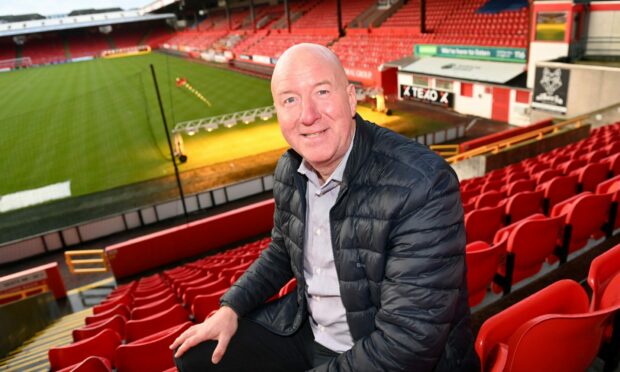
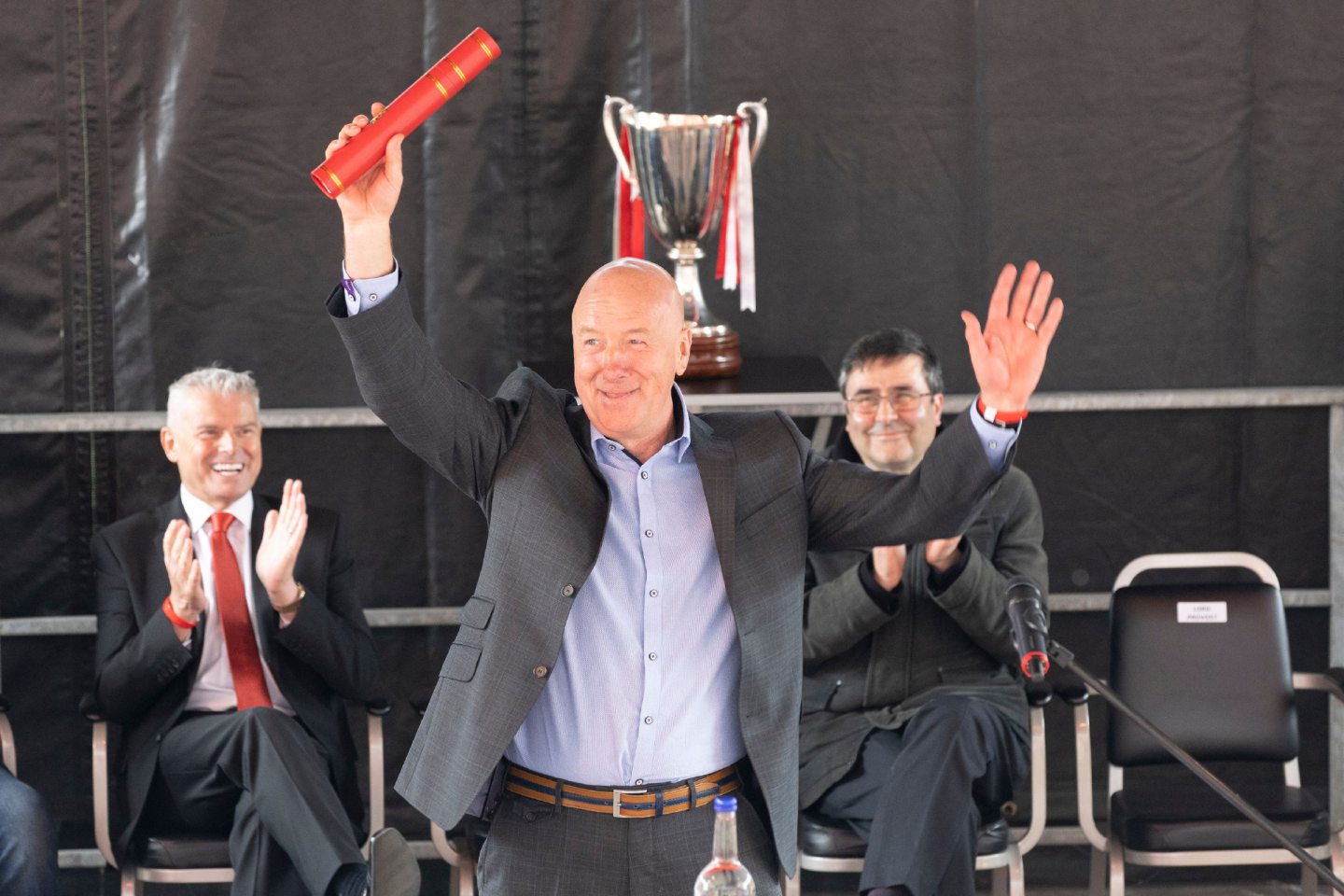
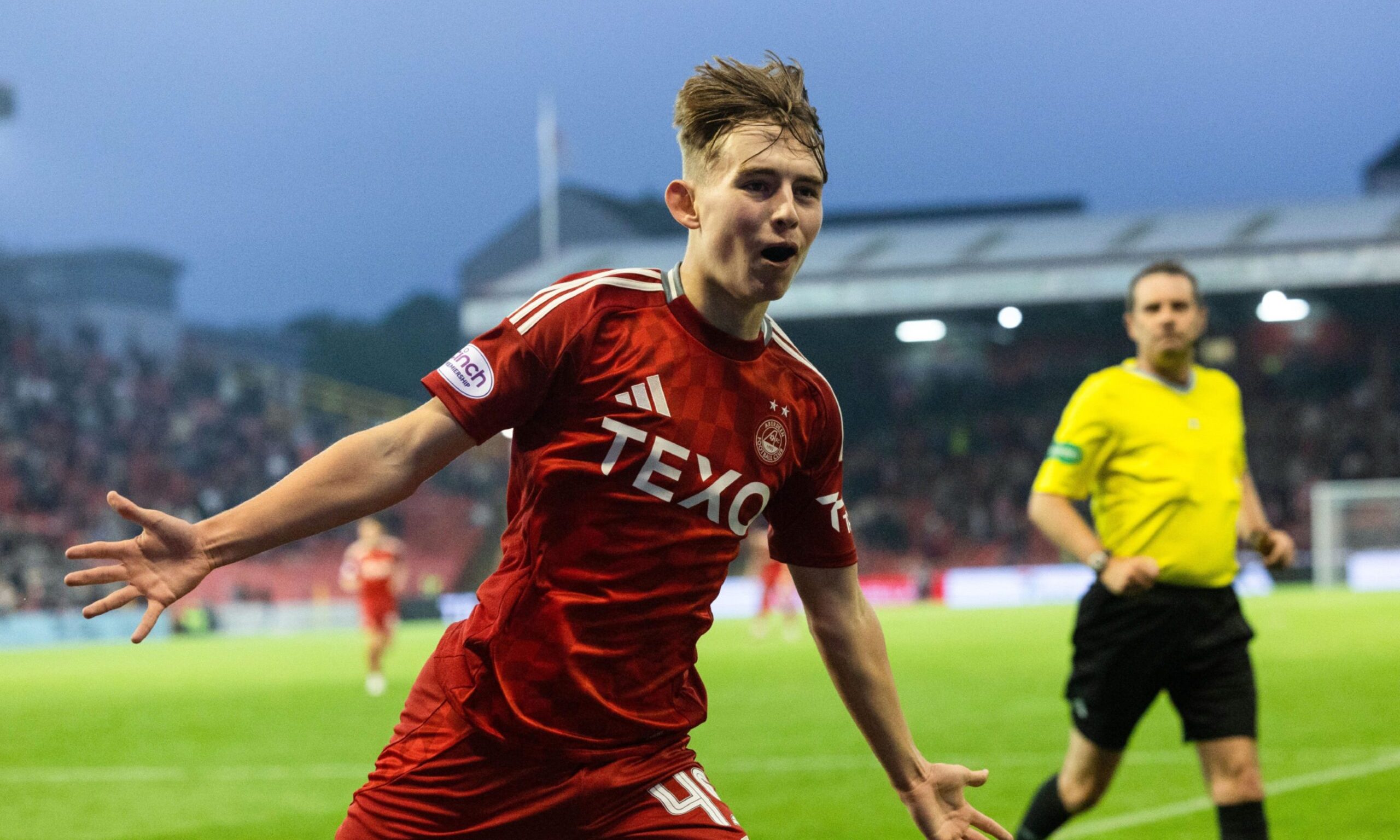
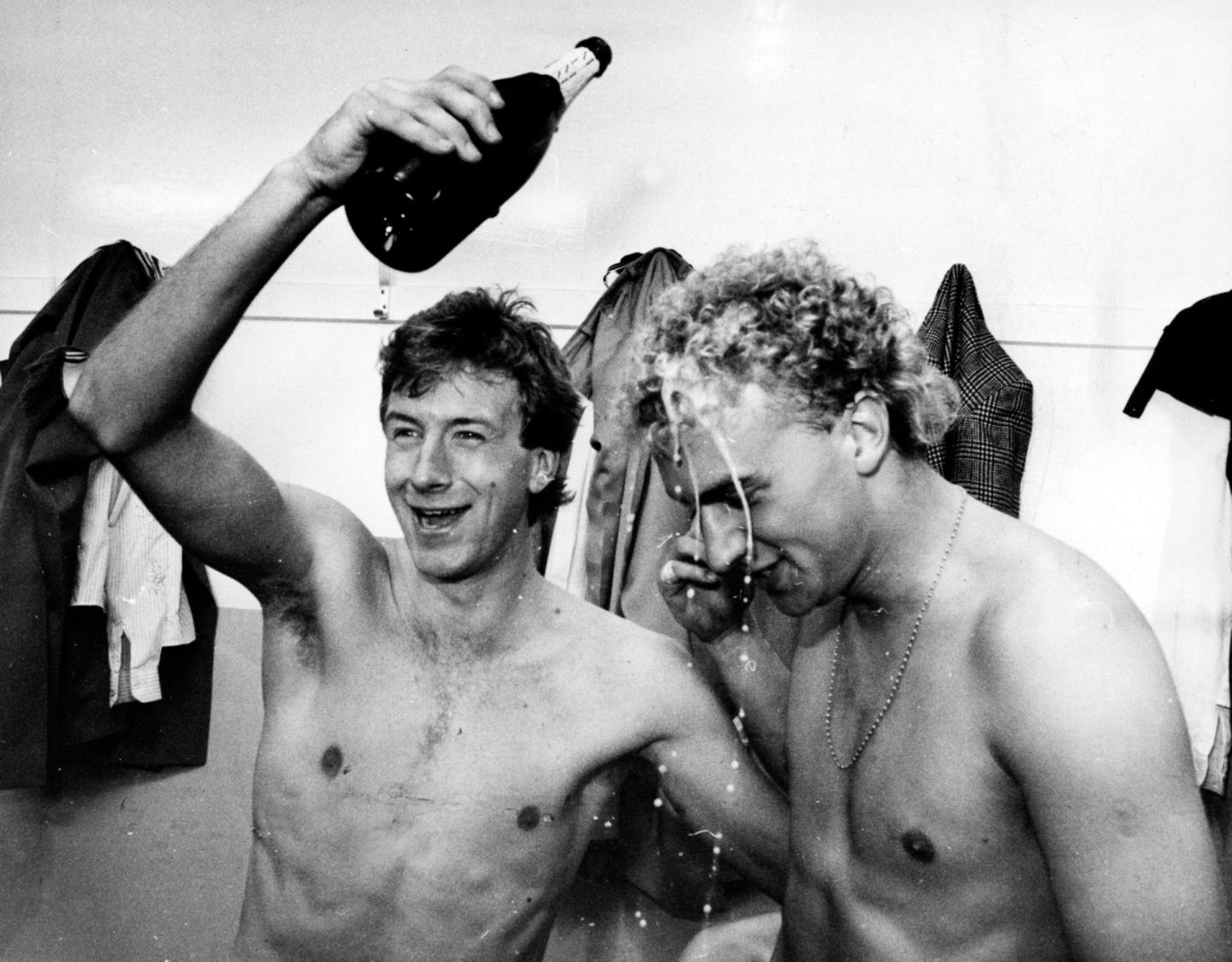
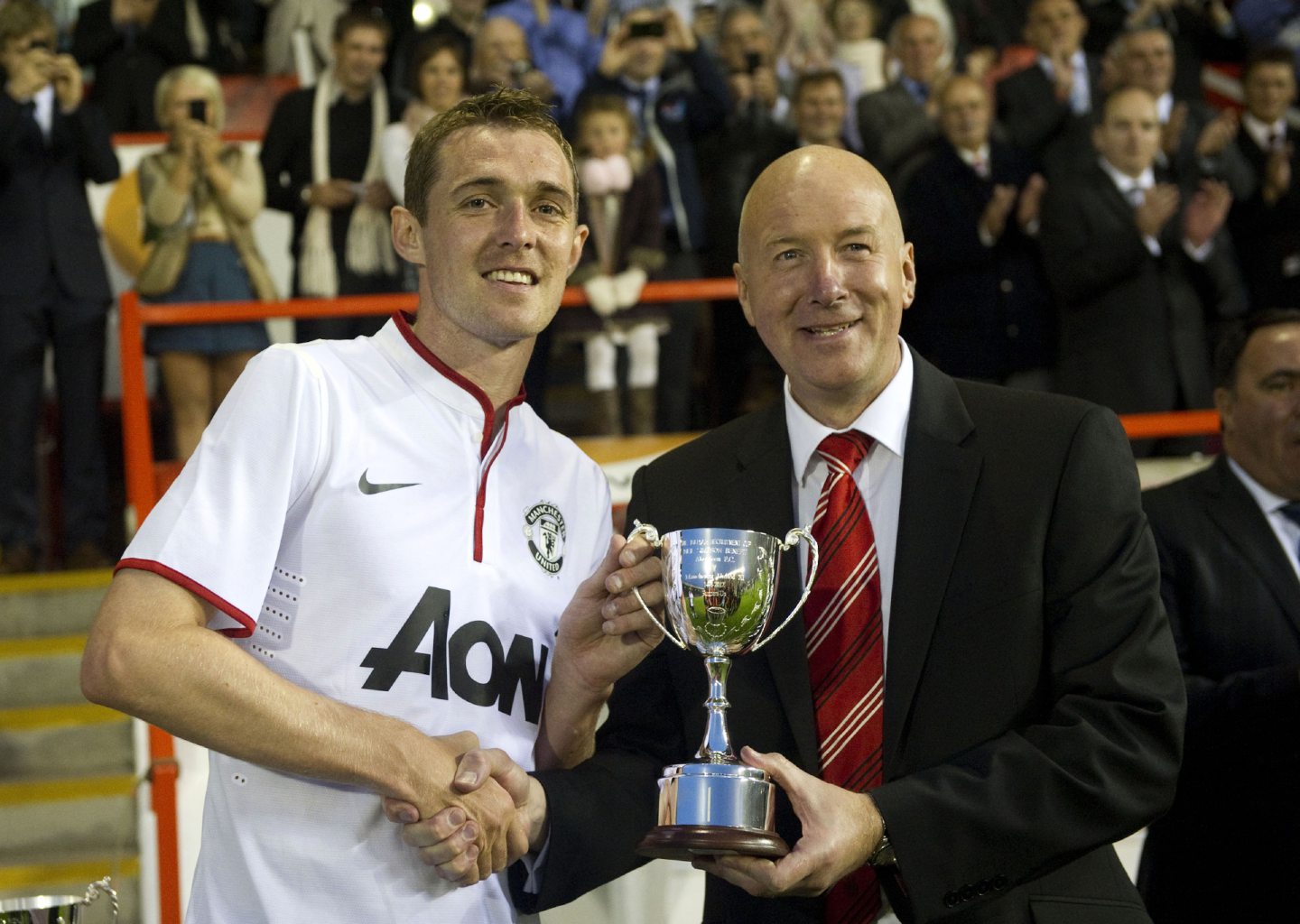
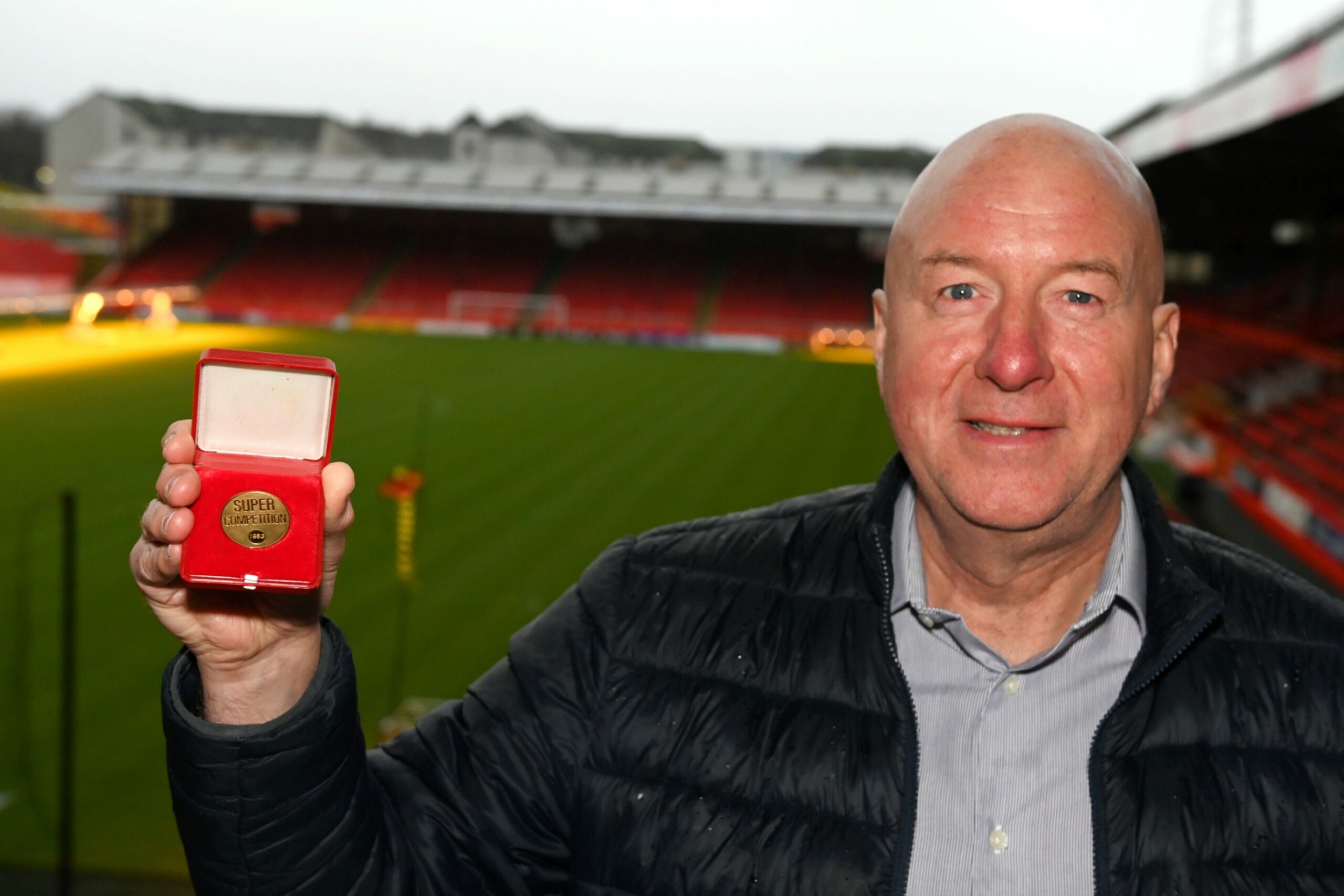
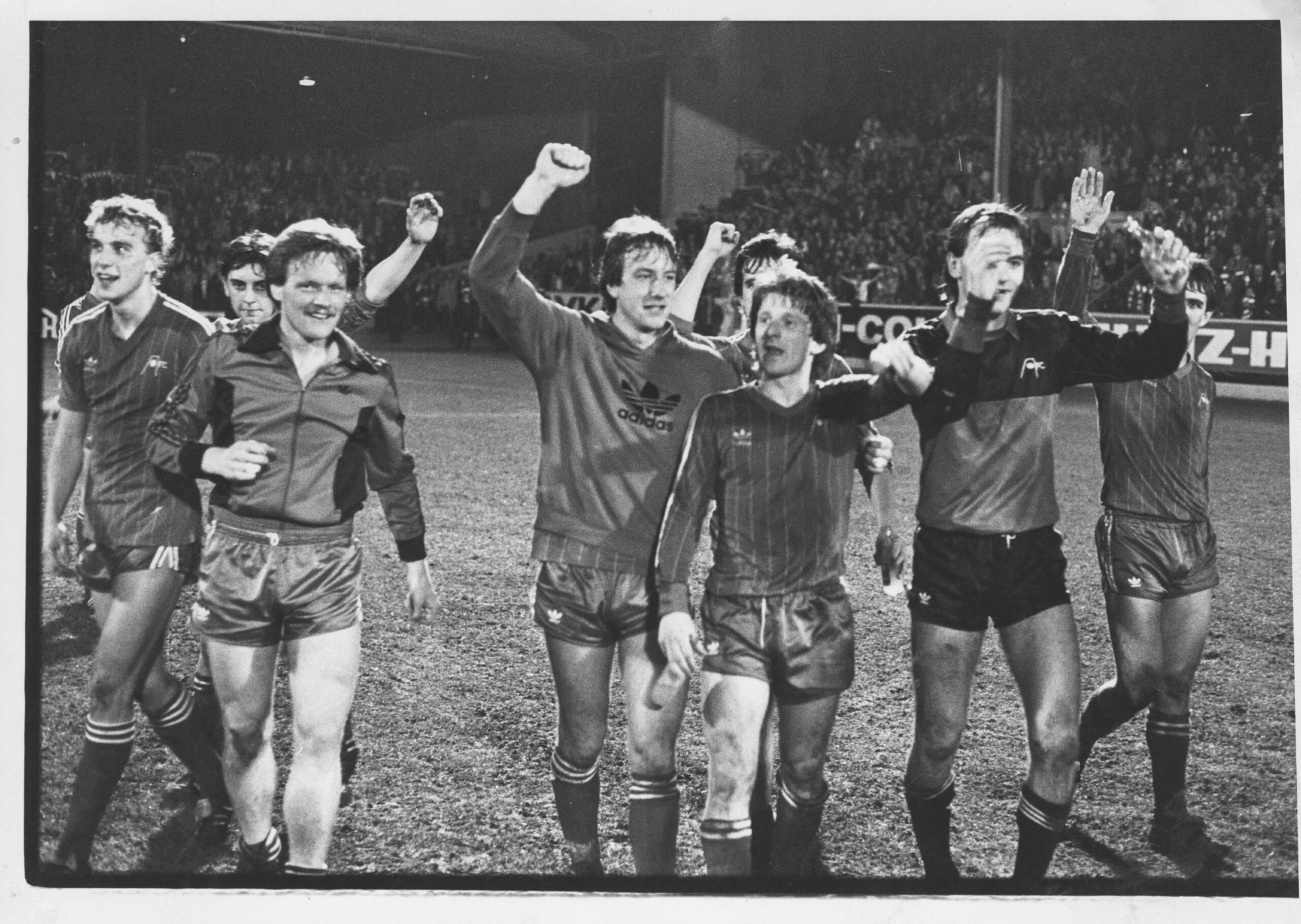
Conversation